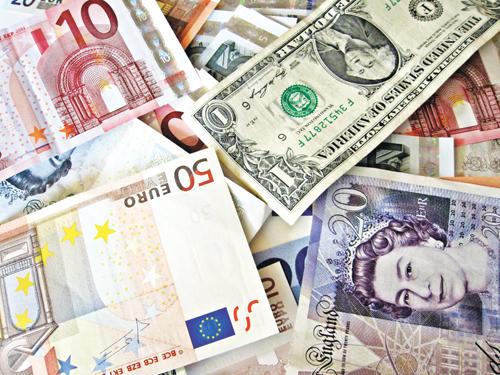Reflecting on currency exposure

PHUKET: If you are a long-term expatriate living in Phuket, Thailand, you have probably seen the Thai baht appreciate significantly against your home currency – a trend that will likely continue for the foreseeable future.
This appreciation (along with an average inflation rate of 2.7% since 2000) makes it increasingly expensive to live in Thailand at a time when you are probably contending with near zero interest rates back home and low cost of living adjustments to your pension.
Fortunately, there are investment strategies that will help you, as an expatriate living in Thailand, to manage or limit your currency exposure risks.
Before you consider investing, you must first determine the level of your currency exposure and risks by answering the following simple questions:
1) Do you divide your time between living in Thailand and living in your home country?
2) Do you foresee returning (or being forced to return) to your home country?
3) Do you still own property in your home country?
4) Do you have other liabilities back home or denominated in your home currency?
5) Do you still need to pay taxes in your home country on your investments or other income?
6) Do you need to disclose offshore investments to your home country’s tax authorities?
If you answered yes to most or all of these questions, then you will need to keep most of your investment portfolio exposed to your home currency and the various offshore investment products marketed to expatriates probably won’t make financial sense.
Americans in particular, need to be careful, due to taxation policies that apply worldwide and increasingly onerous requirements to disclose any kind of offshore accounts, along with the possibility of having to return to the USA to use Medicare for major medical problems.
With the answers to the above questions in mind, a possible investment strategy would be to allocate a portion of your investment portfolio and income to cover any liabilities or expenses you have in Thailand, and another portion of your investment portfolio to cover liabilities or expenses in your home country.
For example: visits to your home country and any liabilities there (taxes, a mortgage on a home, your children’s or grandchildren’s education) should be covered by the return or income from the portion of your investment portfolio exposed to your home country’s currency, while the rest of your portfolio will need to have a more aggressive return to keep up with your liabilities and expenses in Thailand as the baht appreciates.
Fortunately, you do not need to convert part of your investment portfolio into baht and invest directly in Thailand.
Exchange traded funds (ETFs) that trade on major world stock exchanges and invest in emerging markets, such as the iShares MSCI Thailand Index Fund (THD), or invest in foreign currencies can provide an easy way to give your investment portfolio a more aggressive return to keep up with an appreciating baht (and Thailand’s rate of inflation).
Moreover, many ETFs that invest in emerging markets (or internationally) are internally hedged to major world currencies to limit the impact negative currency swings will have on their returns.
However, you will need to be cautious when choosing your investments, as the currency your investment accounts are denominated in may not accurately reflect the actual currency exposure your investments have.
For example: A non-American investor who invests in multi-national company stocks that are either based in the United States or do most of their business there, will actually have an investment portfolio more exposed to the US dollar than to their home currency.
That may actually work out nicely if you are a British investor living in Thailand as the British pound (GBP) has depreciated more significantly against the baht than the US dollar (USD) has over the last decade, but it would be a negative if you are an Australian investor living in Thailand, as the Australian dollar (AUD) has largely kept pace with or has actually appreciated more in value against the baht.
For that reason, and if you are British (or to a lesser extent, American), you may have been better off if a portion of your investment portfolio was focused on Australian stocks or ETFs.
Don Freeman is president of Freeman Capital Management, a Registered Investment Advisor with the US Securities Exchange Commission (SEC), based in Phuket, Thailand.
He has over 15 years experience and provides personal financial planning and wealth management to expatriates. Specializing in UK and US pension transfers. Call 089-970-5795 or email: freemancapital@gmail.com.
— Don Freeman
Latest Thailand News
Follow The Thaiger on Google News:


























